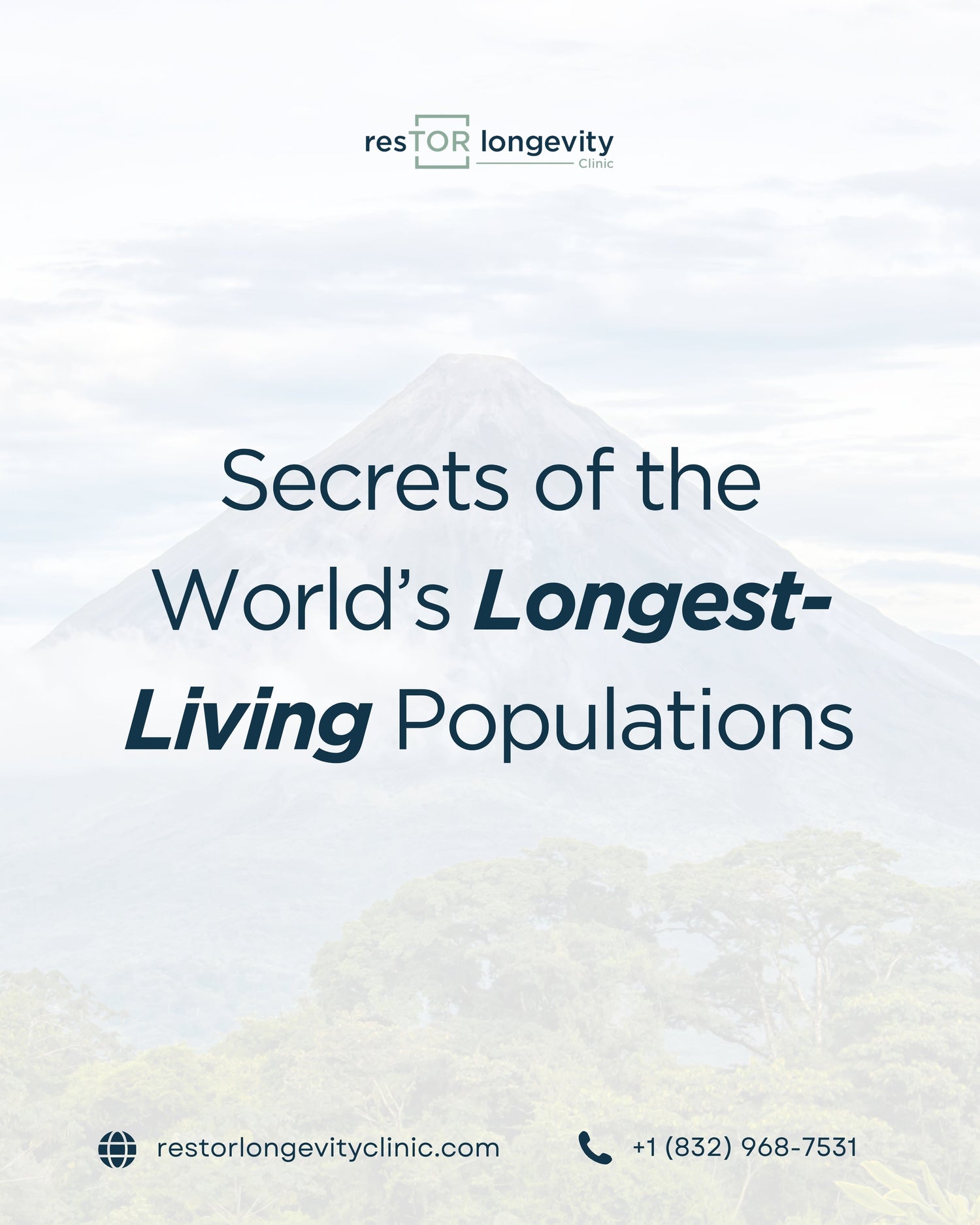Did you know that there are regions in the world where people routinely live to be over 100 years old? These remarkable places, known as Blue Zones, have captured the attention of scientists, health enthusiasts, and curious minds alike. In this blog post, we will explore the unique habits, diets, and lifestyles of the world's longest-living populations, shedding light on how you can incorporate their secrets into your daily life for a longer, healthier existence. By understanding the lifestyles of the elderly from regions such as Okinawa, Sardinia, and Costa Rica, you can learn about the importance of nutrition, social connections, and regular physical activity, ensuring that longevity is not just a matter of genetics but a series of mindfulness practices that anyone can adopt.
Understanding Blue Zones
Blue Zones refer to five geographical areas where the residents live significantly longer than average. The concept was popularized by Dan Buettner, who identified these regions: Okinawa in Japan, Sardinia in Italy, Nicoya Peninsula in Costa Rica, Ikaria in Greece, and Loma Linda in California. Each of these regions shares common factors that contribute to the longevity of their inhabitants. Understanding these factors illuminates pathways to improved health and increased lifespan.
1. Diet: Whole Foods over Processed Foods
A common thread among the Blue Zones is a diet rich in whole foods. Residents primarily consume a plant-based diet, which emphasizes fruits, vegetables, legumes, whole grains, nuts, and seeds. For instance, the Okinawans focus on sweet potatoes, while the Sardinians enjoy whole-grain bread and sheep's milk cheese. Minimal consumption of processed foods is emphasized, along with limited intake of meat and sugar. This type of diet helps in maintaining a healthy weight, lowering the risk of chronic diseases, and promoting overall well-being.
2. The Importance of Social Connections
Regular interaction with friends and family plays a crucial role in the mental health and longevity of Blue Zone residents. Studies show that individuals who maintain strong social networks are happier, less stressed, and more engaged in their communities. For example, Sardinians often congregate for meals and celebrations, which reinforces strong community ties. It's essential to prioritize relationships and social connections, finding time for family gatherings, community events, or even casual coffee meet-ups, fostering an environment where you can thrive emotionally.
3. Keeping Active: Movement is Key
While modern life encourages a sedentary lifestyle, the residents in Blue Zones make physical activity part of their daily routine. Rather than hitting the gym, many engage in natural, moderate-level activities—walking, gardening, and even doing housework. In Nicoya, for example, the locals often walk to the market, maintaining their fitness through everyday tasks. Incorporating regular movement into your life can significantly improve physical health and resiliency as you age.
4. Prioritizing Purpose: What Gets You Up in the Morning?
Having a sense of purpose is another trait common among Blue Zone inhabitants. They have clear reasons to wake up each day—a passion for their work, dedication to family, or community service. Research has found that individuals with a strong sense of purpose have lower risks of chronic diseases and can achieve longevity. Reflect on what gives your life meaning, whether through professional achievements, hobbies, or volunteer opportunities, to inspire your day-to-day existence.
5. Slow Down: Stress Management
In cultures like those found in Ikaria, people encourage a slower pace of life that naturally reduces stress. The locals take time to relax, socialize, and enjoy nature. Emphasizing sleep, leisure activities, and engaging in mindful practices such as meditation or yoga can support not only stress reduction but also enhance your overall health. Make it a practice to disconnect from work, enjoy quiet moments, and immerse yourself in leisurely pursuits that bring joy.
6. Alcohol in Moderation
Many of the longest-living communities consume alcohol, but typically in moderation. In Sardinia, for example, residents enjoy a glass of red wine daily, which is believed to provide health benefits when consumed responsibly. The key is moderation; overindulgence can lead to adverse health outcomes. If you drink alcohol, consider following their example, savoring it as part of social interactions rather than as a habit or routine.
7. Family First
In all Blue Zones, family plays a critical role. Residents prioritize family bonds, living often in close proximity to one another. They focus on raising children with an emphasis on respect and love while caring for elder family members too. Encourage family gatherings, establish open communication, and create an environment that fosters compassion and connectivity. It not only keeps the family unit strong but also reinforces mental health and emotional well-being.
8. Embracing Nature: The Outdoors Connection
The elderly in Blue Zones typically have strong connections to nature, spending ample time outdoors. Whether engaging in outdoor activities or simply taking walks in the park, the presence of nature is linked to positive health outcomes. For your own health, look for opportunities to enjoy the outdoors; gardening, hiking, or participating in outdoor group activities can significantly boost your mood and health.
9. Sleep Quality
Prioritizing sleep is essential for longevity, and it's a trait seen across Blue Zones. Quality rest is vital for mental and physical health, and residents make it a part of their everyday practices. Creating a restful environment, establishing a bedtime routine, and maintaining a consistent sleep schedule can greatly enhance your health.
10. Continuous Learning
Lasting health is not only physical but also cognitive. Engaging your mind through continued learning fosters sharpness and keeps you stimulated. Whether through reading, puzzles, or attending workshops, maintaining a curious mindset can contribute to longevity and mental wellness.
Final Thoughts on Longevity
While genetics may play a role in longevity, the cultures present in these Blue Zones highlight lifestyle habits that anyone can adopt. Prioritizing whole foods, nurturing social connections, maintaining regular movement, fostering purpose, and overall physical and mental wellness are all achievable goals that lead to a longer, healthier life. By adopting these principles, not only can we enhance our individual well-being, but we can also contribute to healthier, happier communities.
So Now What?
Incorporating the lessons learned from the world's longest-living populations into your life can set you on a path toward improved health and longevity. Begin making small changes today—invest in relationships, engage in daily physical activities, and nourish your body with wholesome foods. Every little step counts. Consider booking a personalized wellness plan today to kickstart your journey towards longevity and heightened quality of life.



